Hidden Meanings Behind the Movie, "Lady Bird" (Spoilers)
Reviewed by Joy Davis
Synopsis: "Lady Bird" is a comedy and drama that follows rebellious teen, Christine "Lady Bird" McPherson going through her last year of Catholic high school in Sacramento, California. She dreams of attending college in New York to escape the trappings of her hometown that she finds boring and hypercritical mother, Marion. Lady Bird's family is struggling financially and can't afford any out-of-state tuition with an unemployed father battling depression. She is her own worst enemy for betraying her best friend in pursuit of a new, more popular one and dating guys she's attracted to, but can't seem to maintain a healthy relation with any of them.
Warning: Spoilers within the Presentation

Just Call Me "Lady Bird"
Welcome to "Conscious Movie Reviews." I'm your host Joy Davis and here to review the comedy and drama, "Lady Bird."
Young and brash, Christine "Lady Bird" McPherson wanted out of her hometown in Sacramento, California. Her escape plan was to get away from suburban life, away from her hypercritical mother after graduation from Catholic high school to attend college in New York City.
Taking on the moniker, "Lady Bird," it was a formal way of telling everyone that she's ready to take flight - figuratively "fly the coop."
When Lady Bird's mother, Marion, wanted them to discuss about the audio book version of "The Grapes of Wrath" that they just listened to in the car, their conversation took a different turn that became explosive, fast. Lady Bird stubbornly insisted on going to school in New York for culture, but was harshly reminded that the family has no money for out-of-state tuition, so stop being selfish. Marion envisioned her attending city college, then jail. By jumping out of the moving car, Lady Bird had the last say.
"The Grapes of Wrath" by John Steinbeck was a unique literary choice. It reflected Marion's understanding that their life's theme was like the book - about family needing to band together as a means of survival against poverty and loss. Lady Bird must be devoted to the collective good.
Their relationship to each other was like a push-pull dance of ambivalence. This is typical of combative mothers and daughters. Some days, Lady Bird makes a needy pull for loving reassurance from her mom. Other times, she'll push away to demand autonomy.
As for Lady Bird's daring car stunt, it only proved that she really wasn't a fledgling bird that's prime for leaving the nest, but more of an immature nestling.
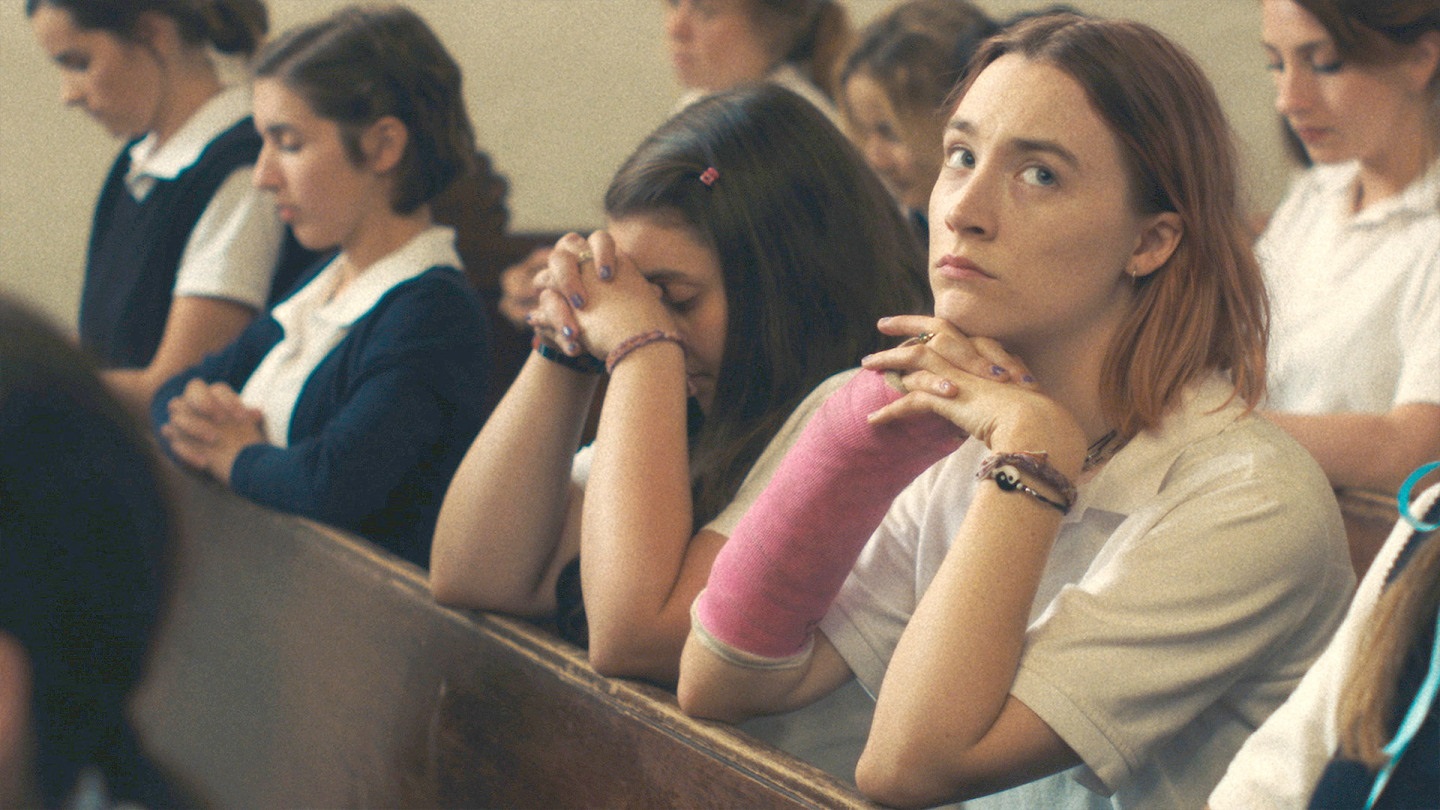
Structure and Discipline That Works
Lady Bird got by academically while putting up with the required dress code, strict rules of moral conduct, group liturgy and prayer. Hanging out with Julie, her best friend, was comic relief from being in Catholic high school.
For Lady Bird's healthy maturity, Catholic school gave her consistent and established rules as a form of positive discipline that was the certainty she needed to achieve any life goals. Her mother's nit-picking only caused too much uncertainty and chaos, so she rebelled.
A religious education for Lady Bird matched her mother's toxic style of parenting to use guilt, fear and punishment, like a church, to keep their followers on the straight and narrow.
Dying her hair red highlighted Lady Bird's lack of personal confidence as a rebel. It was a way of saying, "I'm a bitch and shouldn't have to accept any responsibility for my actions, so you're going to have to live with it." She also preferred pink to wear and keeping her bedroom walls in that color. Pink represents youth and vulnerability. But on the negative end, suggests shallowness and not seeing reality.
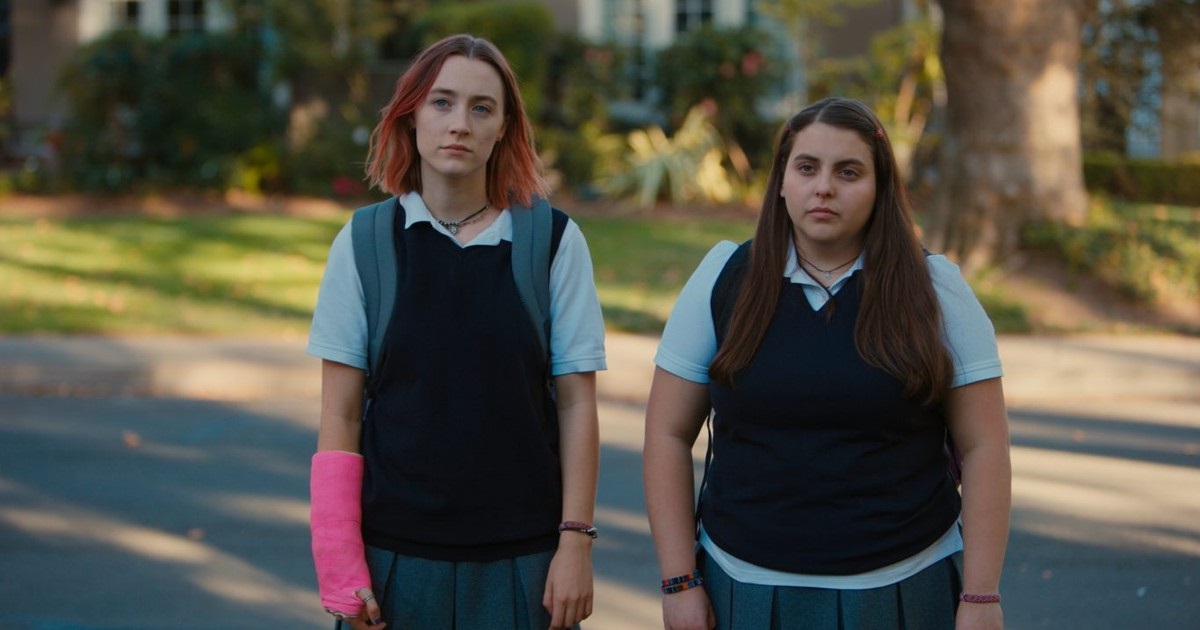
Being a Bad Friend
When Lady Bird dropped her best friend for Jenna Walton as a means to be popular, it didn't last. She failed to realize that rebels like her who are into disestablishment only find themselves lonely because friendships are a form of establishment where there are unspoken rules and expectations. Lying about where you live was a friendship-breaker for Jenna.
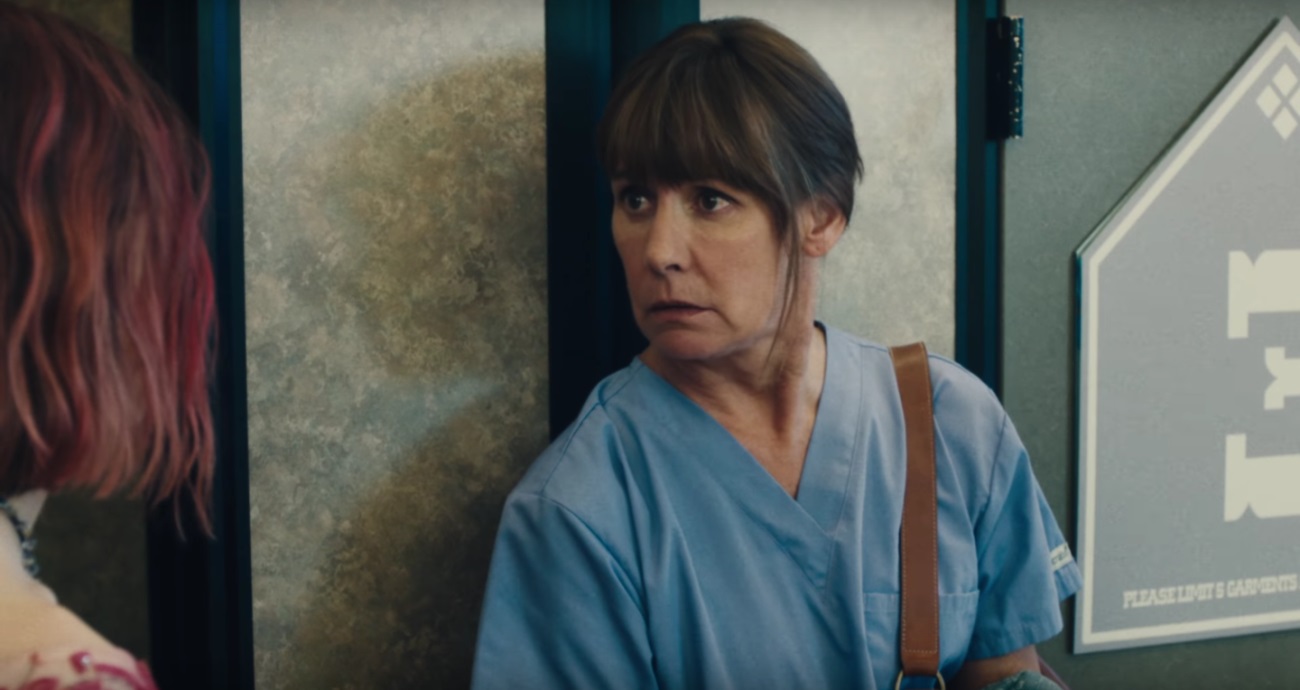
Balancing Out the Hyper-Masculine Within
Marion was constantly stressed from having to provide for the whole family of four with an unemployed husband at home battling depression and being at constant war with Lady Bird.
Both mother and daughter were emotionally imbalanced to be more masculine in an aggressive way. Marion was placed in a traditionally dominant male role as the family's "breadwinner," whereas her husband retreated from it. Larry kept mostly to himself. Because he offered minimal support for his hardened wife to truly feel cherished and heard, Marion could not stay soft inside as a woman.
Lady Bird and her mom had strong personalities with hyper-masculine tendencies. It's only when they go shopping for dresses, look at homes for sale, give gifts, or share a hug, that they're able to relax into being feminine again.
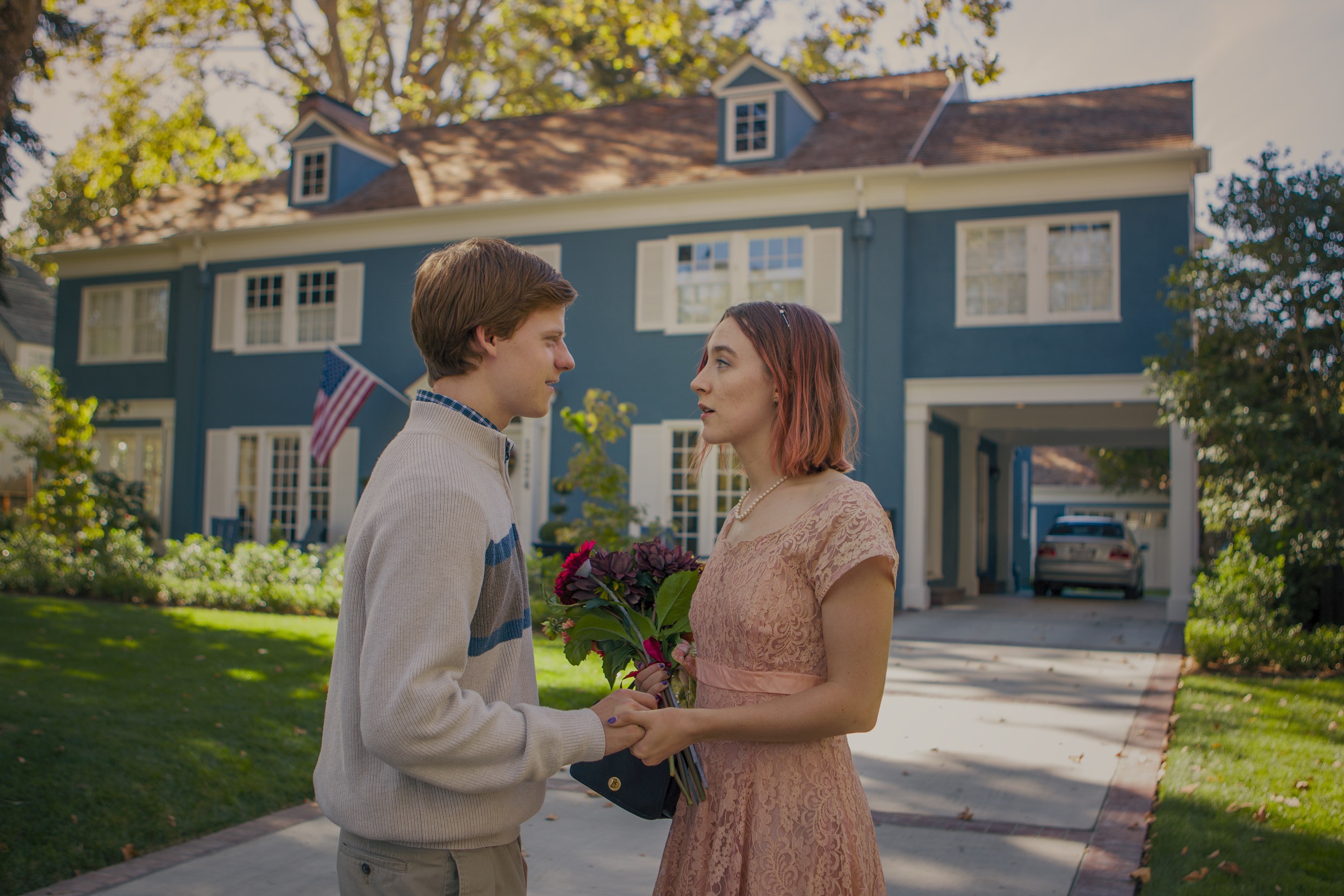
Romantic Failures
Lady Bird tried out for theatre, as suggested by a nun at school who noticed her performative streak. She was hot for her fellow thespian, Danny O'Neill. They dated for a while, until she found him making out with another boy in a bathroom stall.
Lady Bird was the one doing the pursuing in a masculine way. She fittingly attracted a more feminine guy through Danny being gay as a balancing effect.
Moving on to another love interest, Kyle Scheible wasn't any better. He was a rebellious and aloof musician with a father suffering from cancer. After giving up her virginity to him, she assumed it was their first time. He admitted to lying earlier. She's just the seventh one he's bedded.
Both of their fathers were men that couldn't assume the dominant male role in the family from being too weakened by unemployment or illness. Kyle was another version of Lady Bird's darkly masculine side that's emotionally irresponsible, mirroring back to her that sex is about control and not love.
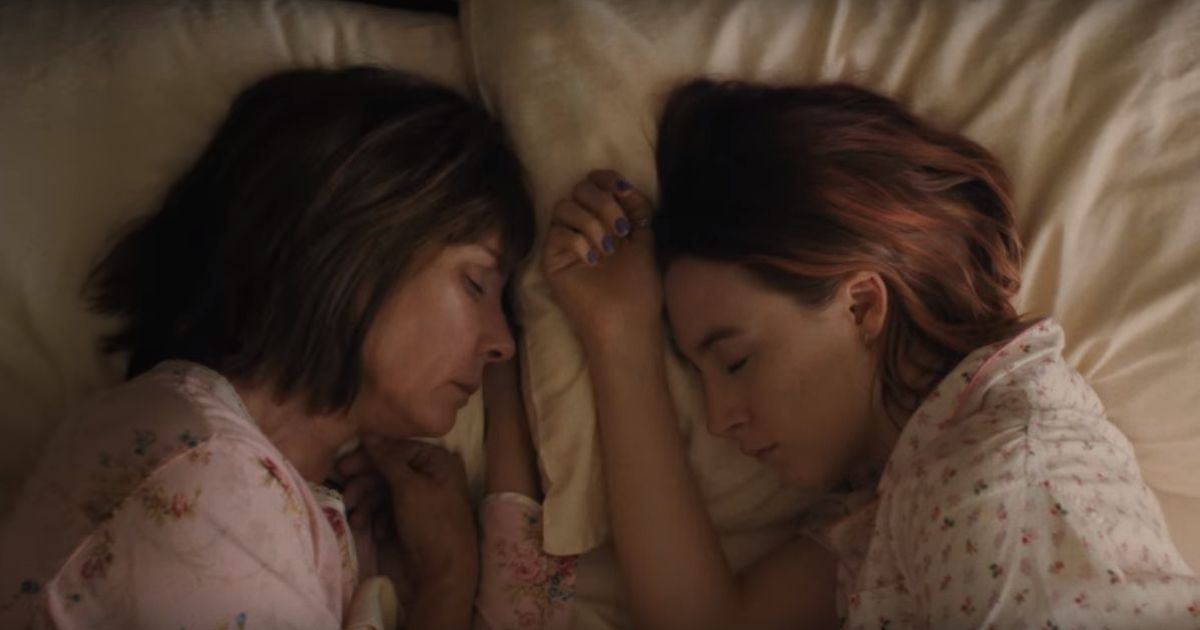
Lady Bird's Love Language Type
After applying to colleges, both local and out-of-state, Lady Bird received mostly rejection letters. A silver lining came from a school in New York that placed her on a waiting list. When her Mom found out about it, she gave her the silent treatment.
Lady Bird suffered by saying, "Please talk to me. I'm so bad. I know I am. Please talk to me."
Based on the teachings of Gary Chapman on the five love languages, Marion failed to see that her daughter's primary love language is to hear words of affirmation and compliments. Her secondary is needing physical touch. They were the two best ways for Lady Bird to feel loved. Giving anyone the silent treatment is a form of violence. When her Mom lashed out with negative or insulting comments, it cut her deep.

Home is in the Heart
In the end, Lady Bird's father was able to refinance their home to pull out some equity money for out-of-state tuition. Marion regretted not seeing her off to board a plane for New York.
The long distance between them only made Lady Bird grow fonder of home, reverting back to her birth name of Christine. She called to leave an endearing message, telling her Mom, "I love you. Thank you."
Subscribe to Beyond 50's Radio Updates!
Beyond 50 values your personal information. Your email will
not be used, sold, or
shared with any outside party.
Related Interviews:
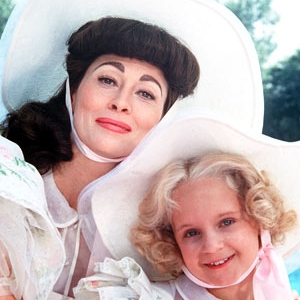
The 7 Habits of Highly Dramatic People
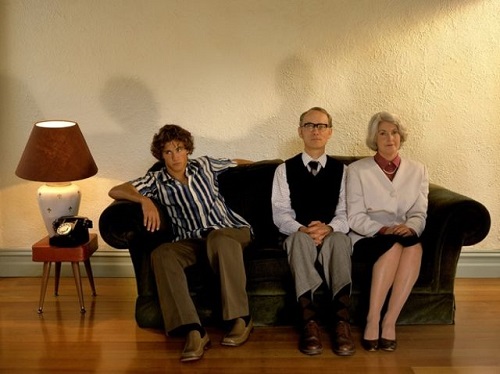
Get Your Grown Kids Out of the House NOW!

Millennial Women:
Generational Targeted Marketing
Watch It Now!




